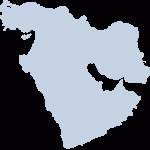Sunday
May092010
Middle East Inside Line: Israel-Palestine Indirect Talks; Syrian-Turkey Meeting
 Sunday, May 9, 2010 at 21:14
Sunday, May 9, 2010 at 21:14  The Indirect Talks Begin: Following a session of several hours, the Palestine Liberation Organization (PLO) on Saturday approved indirect talks with Israel. At the end of the meeting, Yasser Abed Rabbo, a member of the PLO committee, said: "As far as we are concerned, the start of the indirect negotiations can be announced today. The negotiations will take one form: shuttling between President Abu Mazen and the Israeli Prime Minister Netanyahu."
The Indirect Talks Begin: Following a session of several hours, the Palestine Liberation Organization (PLO) on Saturday approved indirect talks with Israel. At the end of the meeting, Yasser Abed Rabbo, a member of the PLO committee, said: "As far as we are concerned, the start of the indirect negotiations can be announced today. The negotiations will take one form: shuttling between President Abu Mazen and the Israeli Prime Minister Netanyahu."Washington welcomed Ramallah's decision. "It is an important and welcome step," US State Department spokesman P.J. Crowley said.
Middle East Inside Line: Mitchell’s Talks in Palestine; Israel’s Official Perception of Peace
In contrast, Hamas's Gaza leadership denounced the PLO decision as a “stab in the back of our people” and said the organisation does not represent Palestinians.
On Sunday, following a meeting between the leader of the Palestinian Authority, Mahmoud Abbas, and US Mideast envoy George Mitchell, top Palestinian negotiator Saeb Erekat said that he hoped Israel would give the process a chance, rather than setting facts on the ground that will complicate the talks.
The indirect talks are scheduled to last at least four months.
The Turkey-Syria-Israel Triangle: On Saturday, Syrian President Bashar Assad was in Turkey to sign two cooperation deals with Turkish Prime Minister Recep Tayyip Erdogan, covering joint communications projects and border crossings. This is Assad's second visit to Turkey since last August.
In a joint press conference with Turkish counter Abdullah Gul, Assad said that Israel's hostile and uncompromising policy vis-à-vis the Palestinians undermines the Middle East peace process and added:
I do not think conditions are ripe for successful (Turkish) mediation, because Israel doesn't appear to be ready for peace. If there is even a one percent chance of war breaking out, we are working to prevent it.
Gul continued:
Syria has said it is ready to resume talks where they were left off. However, we have not heard from the Israeli side. It is up to them.
The Middle East peace process is the biggest problem in the world and the world should make a settlement of the conflict a number one priority. The region cannot take another war anymore.
What happened in Gaza two years ago was the last straw. No one in the world can condone or turn a blind eye on the repetition of such a thing anymore.
During a state visit to Moscow marking the 65th anniversary celebrations of the Allied victory over the Nazis, Israeli President Shimon Peres told Russian President Medvedev, who leaves Monday for a two-day state visit to Damascus, that he should “send him [Syrian President Basher Assad] a clear message: Israel is not interested in border escalation or a war, this is the last thing we want. We extend our hand in peace to Syria, but there must be one basic condition, Assad must stop his support for terror and stop trafficking weapons and missiles to Hezbollah.”
tagged  Abdullah Gul,
Abdullah Gul,  Bashar Al-Assad,
Bashar Al-Assad,  Benjamin Netanyahu,
Benjamin Netanyahu,  Dmitry Medvedev,
Dmitry Medvedev,  Gaza,
Gaza,  George Mitchell,
George Mitchell,  Hamas,
Hamas,  Hezbollah,
Hezbollah,  Israel,
Israel,  Mahmoud Abbas,
Mahmoud Abbas,  P.J. Crowley,
P.J. Crowley,  Palestinian Authority,
Palestinian Authority,  Palestinian Liberation Organization,
Palestinian Liberation Organization,  Recep Tayyip Erdogan,
Recep Tayyip Erdogan,  Russia,
Russia,  Saeb Erekat,
Saeb Erekat,  Syria,
Syria,  Turkey,
Turkey,  Yasser Abed Rabbo in
Yasser Abed Rabbo in  Middle East & Iran
Middle East & Iran
 Abdullah Gul,
Abdullah Gul,  Bashar Al-Assad,
Bashar Al-Assad,  Benjamin Netanyahu,
Benjamin Netanyahu,  Dmitry Medvedev,
Dmitry Medvedev,  Gaza,
Gaza,  George Mitchell,
George Mitchell,  Hamas,
Hamas,  Hezbollah,
Hezbollah,  Israel,
Israel,  Mahmoud Abbas,
Mahmoud Abbas,  P.J. Crowley,
P.J. Crowley,  Palestinian Authority,
Palestinian Authority,  Palestinian Liberation Organization,
Palestinian Liberation Organization,  Recep Tayyip Erdogan,
Recep Tayyip Erdogan,  Russia,
Russia,  Saeb Erekat,
Saeb Erekat,  Syria,
Syria,  Turkey,
Turkey,  Yasser Abed Rabbo in
Yasser Abed Rabbo in  Middle East & Iran
Middle East & Iran 



